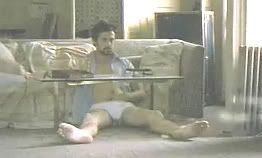RYAN GOSLING: AN UN-HOLLYWOOD STAR
Ryan Gosling drips out his words like a shower head in an old apartment building with dismal water pressure.
He’s the type to start a sentence three different ways and interrupt its progress with a breathy sigh at midpoint. Strains of thought are cut off before they get going. Pauses linger two beats longer than suitably comfortable.
It’s easy to imagine him there, on the other end of the phone at his place in Los Angeles, rubbing his pained eyes the way the coke-head teacher he plays in “Half Nelson” does so many times during history class.
Is it necessary to talk about the “Mickey Mouse Club” again?
Yes, he was there, with Britney and Christina and Justin. No, he’s not still in touch with them. That was a long time ago, it was a fine experience, left him with a hefty work ethic, etc., etc., etc.
Gosling has been called “the most exciting actor of his generation,” but his is a career shaped by the fact that he finds so much of the Hollywood movie machinery intolerable. The part where industry executives demand return on investments, for instance, or the requirement that leading characters be sympathetic ones. The answering of questions from a faceless journalist in an interview arranged by his agent, perhaps.
“I’m not a salesman,” Gosling says. And that’s true.
He’s a 25-year-old high school dropout whose mother home-schooled him for the fifth grade because he was having so much trouble in class. The “Mickey Mouse Club” thing came from an on-a-whim audition that led to two seasons on the show, which led to roles in other television series and a life away from the Ontario, Canada, town where most of his male relatives still work in a paper mill.
Then it just took off. One role, then another, then another, and suddenly he has been acting for half his life. Critics took note after his performance as a Jewish neo-Nazi in “The Believer” (2001). Teen magazines showed interest three years later when he turned up as a lovelorn woodworker in “The Notebook,” a teary romance based on the Nicholas Sparks novel.
But even after such success, Gosling, whose ability to inhabit a role is almost visceral, was more than a little uncertain he was born for a life on screen. With “Half Nelson,” an independent film written by a pair of first-time moviemakers, whispers of Oscar nominations began before the film saw its first paying audience.
Has he concluded, now, that he’s in the right career?
“Maybe at the moment,” he says flatly. “I think people can do all kinds of things, you know?”
What he has done so far is land a series of substantial roles almost sure to prevent him from becoming an American sweetheart. There’s the neo-Nazi, of course, then a teenage killer in “Murder by Numbers” (2002) and a juvenile delinquent in “The United States of Leland” (2003). In “Half Nelson,” he’s an inspiring charmer of a teacher, but one wracked by disillusionment and addiction, careless enough to hit the crack pipe in the girls’ locker room and be discovered by a student as he convulses against a bathroom stall.
It’s not that Gosling isn’t getting offers to act in potential blockbusters or that he’s philosophically opposed to big-budget films, it’s just that — well, maybe he is philosophically opposed to big-budget films. “I understand the studios, in the sense that if they’re going to spend $100 million on a film, they want to make sure they’re gonna get that back ... but I don’t know how to guarantee you you’re going to make that money back, and I’m uncomfortable working with those kind of numbers.”
He is thinking of directing now, taking a turn on the other side of the camera. Will he continue to perform as well?
“Yeah, we’ll see.”
And the satisfaction he does derive from acting, this endeavor that has won him such acclaim: “I’m sure it would be hard to articulate.”
Source: Ellen McCarthy in MSNBC
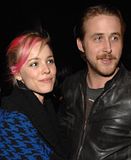
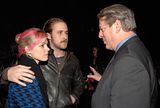
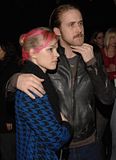
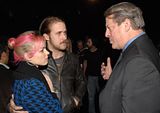
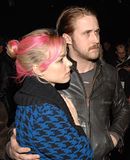
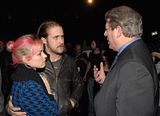
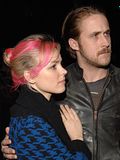
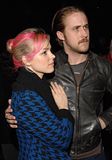
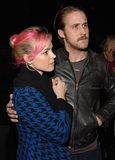
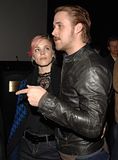
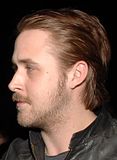
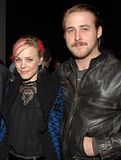
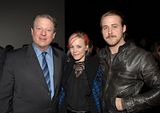
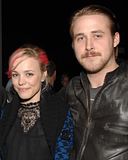

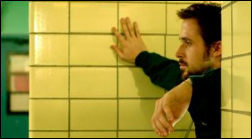
 traditionally been first out of the gate with their year-end awards list, was published today. Ryan has won for Breakthrough Performance by an actor, and Half Nelson has been named one of the top independent films of the year. Congratulations for Ryan, this is just another reward for his amazing work.
traditionally been first out of the gate with their year-end awards list, was published today. Ryan has won for Breakthrough Performance by an actor, and Half Nelson has been named one of the top independent films of the year. Congratulations for Ryan, this is just another reward for his amazing work.